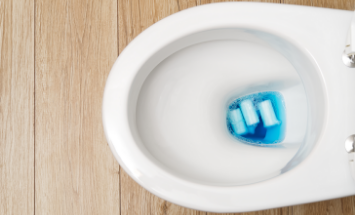Morning Self-Care Routine: Start Your Day with Energy & Clarity
In our fast-paced world, the way we start our morning sets the tone for our entire day. A thoughtfully crafted morning self-care routine isn’t just a luxury—it’s a powerful investment in your mental, physical, and emotional well-being. Research consistently shows that establishing intentional morning habits can reduce stress, boost productivity, and enhance overall life satisfaction.
The Science Behind Morning Self-Care
Your brain undergoes remarkable changes during the early morning hours. Cortisol, often called the “stress hormone,” naturally peaks 30-45 minutes after waking, serving as your brain’s natural wake-up call. However, without proper self-care practices, this cortisol spike can leave you feeling anxious and overwhelmed rather than energized and focused (Ahead App).
Studies have demonstrated that structured morning routines can significantly lower cortisol levels throughout the day, leading to decreased stress and improved emotional regulation (Mission Connection Healthcare). Additionally, engaging in self-care activities helps reduce stress, improve mood, boost self-esteem and enhance overall mental resilience (Beyond Healing Counseling).

Core Elements of an Effective Morning Self-Care Routine
1. Mindful Awakening and Hydration
Begin your day with intention rather than immediately reaching for your phone. Upon waking, take three deep breaths and set a positive intention for the day ahead. Follow this with a glass of water to rehydrate your body after hours of sleep.
The Science: Mindfulness practices in the morning activate the prefrontal cortex, the brain region responsible for executive function.
2. Movement and Exercise
Physical activity in the morning doesn’t have to mean an intense workout. Even 10-20 minutes of gentle stretching, yoga, or a brief walk can make a significant difference.
The Benefits:
- Endorphin Release: Morning exercise triggers the release of endorphins, natural mood enhancers that reduce tension.
- Mental Clarity: Exercise leads to the secretion of neurotransmitters that promote mental clarity.
- Mood Enhancement: Physical activity increases dopamine and serotonin production, which can significantly improve mood. American Psychological Association
3. Meditation and Mindfulness
Even five minutes of meditation can create profound changes in your mental state and stress levels.
Scientific Benefits:
- Stress Reduction: Mindfulness-based stress reduction (MBSR) significantly lowers cortisol levels.
- Improved Emotional Regulation: Regular meditation practice enhances your ability to manage emotions and respond rather than react to stressful situations.
- Enhanced Self-Awareness: Meditation increases self-awareness and helps you better understand your thoughts.
4. Nourishing Breakfast
Fuel your body with nutritious foods that provide sustained energy. Focus on:
- Protein: Eggs, Greek yogurt, or plant-based proteins
- Complex carbohydrates: Oatmeal, whole-grain toast, or fruits
- Healthy fats: Avocado, nuts, or seeds
5. Gratitude Practice
Spend 2-3 minutes writing down three things you’re grateful for. This simple practice can shift your mindset from scarcity to abundance and improve overall life satisfaction.
6. Digital Boundaries
Avoid checking your phone, emails, or social media for the first 30-60 minutes after waking. This protects your mental space from external stressors and allows you to maintain the calm energy you’ve cultivated.

please note
My hope is that you do not feel overwhelmed by this routine, but rather that these ideas will inspire you to try and incorporate a few key habits into your morning for the chance to reconnect with yourself, and to start your day relaxed. Remember,
- you by no means need to all or even any of these.
- life happens. it is very unlikely that every day will look like this (if yours does i’m jealous).
So, with that, I hope you’re able to find a balance between not feeling overwhelmed having too much to do (aka letting go of what you *should be doing* – as prescribed by everyone else), and still finding that sacred time to incorporate some key habits and rituals that reflect how you want to be spending your time, and what serves you best.
wake up
While an obvious part of anyone’s morning routine, here I’m specifically referring to how you wake up. If you’re anything like me, you’ve been caught hitting snooze multiple times, even after telling yourself the night before that you absolutely would not.
PLANTIFIQUE Jade Roller & Gua Sha Set – Real Jade Facial Tools for Skin Care Routine – Certified Face Massager for Radiant Skin
HIGH QUALITY: the facial roller and guasha are handcrafted authentic Jade Stone from Anshan city, Liaoning province. The jade roller and gua sha stone is known for promoting balance and good energy which will have a positive effect on your skin.

The unfortunate reality is that going back to sleep after your alarm goes off can actually increase your level of tiredness and make you feel drowsy, because you don’t have the opportunity to fall back into a deep sleep and instead each time you snooze you dip in and out of a surface level sleep.
The more you snooze, the more confused your body and brain become (“ummm are we getting up or not?”), and the more unsettled your internal clock becomes (especially if each day you’re getting up at a different time).
Tips for a better wake-up:
- Set your alarm for the same time every day.
- Be realistic in your wake-up time. If you’re trying to start getting up earlier, consider shifting the time slowly, moving it 5-15 minutes earlier every 2-3 days to give your body time to adjust.
- Wake up when your alarm goes off. You need to associate the sound of your alarm with waking up, or your body will begin to ignore it.
- Use the time you would have spent snoozing to cultivate a ritual or routine you’re really excited about.
- Set your alarm clock out of reach, either across the room or in a different room.
- If you hate the sound of your alarm, change it up every month or so! Consider using a song that excites you, or getting an alarm clock like this Philips Wake-Up Light Alarm Clock which simulates the sunrise (this is especially helpful if it’s winter, the days are longer and/or you need to get up before the actual sun rises).
- Ensure your phone isn’t nearby! Scrolling your phone first thing in the morning is the worst form of early morning self-sabotage.

hydrate
After being asleep for (ideally) 8 hours, your body needs to be hydrated!
It’s no wonder we wake up feeling tired and lacking energy, when we’re completely dehydrated. I keep a glass of water by my bed so I can take a few moments to drink it before I leave my bedroom.
make your bed
This is a non-negotiable for me.
I love the sense of control and peace I get when I can complete a simple task like making my bed first thing in the morning. Making your bed is shown to kick start a chain reaction of organization and focus, helping you to increase your productivity and complete more tasks, because you feel accomplished for having already completed a simple win!
skincare
My current facial routine includes a 1-minute wash, which was something I learned from Celeste Thomas of The True Spoon blog as a simple tip for clearer skin.
Set a timer and take the full minute to wash your face; starting by wetting your face with warm water to open your pores, then (after turning the water off) using your face wash of choice to lather in all areas of your face. notice where you spend the most time naturally; are there any areas you’ve been neglecting? Once the minute is up, splash your face with cold water to close off the pores again.
After the one minute wash, I go about utilizing any other serums or moisturizers I am currently using, before applying SPF. The skincare routine you choose to implement should really be unique to your skin type, which is why I don’t want to give any specific recommendations!
Instead, I’d recommend doing some research online, and/or seeing a dermatologist or other skincare expert who can truly take a look at your skin and let you know what you need.
This routine can be as simple or as complicated as you want it to be. Other options might include a jade roller and/ or gua sha tool, a facial oil, toner, or face mask. The purpose of this part of my morning routine is to show my skin a little self-love early on, and to give some time for the products to set in before I do my makeup.
P.S. if I’m doing more intense movement where I know I’ll need to shower afterwards, I save my skincare for after my shower and instead just do a quick splash of cold water to wake myself up.
Creating Your Personal Morning Self-Care Routine
Start Small and Build Gradually
The key to sustainable change is starting with just one or two elements and gradually adding more as they become habitual. Successful people understand that consistency trumps intensity.
Sample 30-Minute Morning Self-Care Routine:
- 5 minutes: Wake up mindfully, hydrate, and set daily intention
- 10 minutes: Gentle stretching or yoga
- 5 minutes: Meditation or deep breathing
- 5 minutes: Gratitude journaling
- 5 minutes: Prepare and enjoy a nourishing breakfast
Sample 60-Minute Extended Routine:
- 10 minutes: Mindful awakening and hydration
- 20 minutes: Exercise or movement
- 10 minutes: Meditation
- 5 minutes: Gratitude practice
- 10 minutes: Reading or journaling
- 5 minutes: Intention setting for the day
Overcoming Common Challenges
“I Don’t Have Time”
Start with just 10 minutes. Wake up 10 minutes earlier and choose one self-care activity. As this becomes routine, you can gradually extend the time.
“I’m Not a Morning Person.”
Begin by improving your evening routine. Go to bed 15-30 minutes earlier and avoid screens before sleep. Prepare everything the night before to reduce morning decision-making.
“I Keep Forgetting”
Create visual reminders: lay out yoga clothes, place your journal by your bed, or set gentle alarm reminders on your phone.
The Ripple Effects of Morning Self-Care
When you prioritize morning self-care, the benefits extend far beyond the first hour of your day:
- Increased Productivity: Starting with intention and calm energy improves focus and decision-making throughout the day
- Better Relationships: When you feel centered and grounded, you’re more present and patient with others
- Enhanced Resilience: Regular self-care practices build emotional resilience to handle daily stressors
- Improved Physical Health: Consistent morning movement and mindfulness practices contribute to better overall health
- Greater Life Satisfaction: Taking time for yourself communicates self-worth and leads to increased happiness
Making It Sustainable
Remember that your morning self-care routine should serve you, not stress you. Be flexible and adjust your routine based on your schedule, energy levels, and changing needs. The goal is progress, not perfection.
As research from Psychology Today confirms, establishing a routine can improve your mental health by providing predictable structure and reducing the cognitive load of constant decision-making (Psychology Today).
How to set a healthy morning routine
The “best” morning routine is the one that works for you. Here’s how to personalize yours:
- Identify your goals. Do you crave a quiet, mindful morning or an energizing jump-start? What do you want to accomplish each day? Knowing your goals helps you choose the right activities.
- Consider your chronotype. Are you an early bird or a night owl? Aligning your routine with your natural sleep-wake cycle makes it easier to maintain.
- Plan and prep. The night before, lay out your clothes, pack your bag and prep breakfast ingredients. This saves precious morning minutes and reduces decision fatigue.
- Start small and build gradually. Don’t overwhelm yourself with a massive to-do list. Begin with one to two achievable habits, and add more as you adjust.
Here are some more tips for setting a morning routine that works for you:
- Start with a morning stretch routine: Incorporating gentle stretches upon waking can awaken your muscles, increase flexibility and improve blood circulation. A quick five- to 10-minute stretching session can set a positive tone for the day ahead.
- Utilize a morning routine checklist: Creating a checklist can help you stay organized and ensure you don’t forget any essential tasks. Include activities such as making your bed, hydrating and planning your day ahead.
- Explore morning routine ideas: Experiment with different activities to find what works best for you. From journaling to meditation or a brisk morning walk, there are countless ways to kick-start your day positively.
Morning routine checklist ideas:
- Hydrate: Start with a glass of water to rehydrate after sleep.
- Gentle movement: A short morning stretch routine or light yoga routine loosens your body and wakes you up.
- Nourish your body: Fuel your day with a healthy breakfast.
- Self-care rituals: Take some quiet time for meditation, journaling or a morning skin care routine.
- Plan and prioritize: Review your schedule and to-do list to set your daily intentions.
Other things that can help with your morning routine include:
- Getting a good night’s sleep so you’re refreshed in the a.m.
- Don’t hit the snooze button.
- Don’t overwhelm yourself with work or social media first thing in the morning.
- Give yourself enough time to comfortably get to work or to start work for those who work from home.
- Skip sugary foods, and opt for whole, nutrient-dense options instead. This includes drinking coffee without added sugar or tea instead of energy drinks or sugary
Why Self-Care Isn’t Selfish
Are you eating, drinking, and sleeping enough?
In order to feel safe, your basic needs must be met. Abraham Maslow developed a theory called “Maslow’s Hierarchy of Needs” in 1943 which identifies physical needs, safety needs, love and belonging, esteem, and self-actualization as essential human needs.
You don’t have to go overboard with self-pampering in order to take care of yourself. Sometimes simple steps are all it takes to give yourself some love.
How to start…
Benefits of Self-Care
You’re not alone.
Rates of depression have tripled in recent years. You may find yourself or a loved one struggling with their mental health.
Engaging in self-care has been clinically proven to reduce or eliminate anxiety and depression, according to an article by Mental Health First Aid.
It can also help reduce stress, increase happiness, build strong relationships, and develop resilience.
Physical Self-care
You need to take care of your body in order for it to run efficiently. The body-mind connection is strong, and they work together well. When the physical body is strong, mental health is positively affected as well.
Physical health includes how you are fueling your body, how much exercise you provide your body, and how well you are taking care of your physical needs.
Physical activities release endorphins, which give your body extra energy and feel-good vibes. Endorphins also positively affect your psychological health.
The following questions will help you assess how to improve your physical health:
- Am I getting adequate sleep?
- Is my diet fueling my body?
- Am I taking control of my health?
- Am I getting sufficient exercise?
Mental Self-Care
The types of thoughts you think and the things you fill your mind with have an immense influence on your psychological well-being.
Activities you can do to keep your mind sharp are learning new things, solving puzzles, and reading books.
Staying mentally healthy also includes practicing self-compassion and self-acceptance. Be kind and forgiving to yourself. Your self-talk can significantly impact your mood, so consider changing it. Start by noticing your thought patterns. Don’t allow yourself to go down a negative path. Once you notice the thoughts, you immediately take away their power. You can focus your awareness on something that brings you joy.
Conclusion
Investing in a morning self-care routine is one of the most powerful gifts you can give yourself. By dedicating even a small amount of time each morning to nurturing your mind, body, and spirit, you’re setting yourself up for greater success, happiness, and well-being throughout the day.
Start tomorrow morning with just one element that resonates with you. Whether it’s five minutes of meditation, a few gentle stretches, or simply drinking a glass of water mindfully, you’re taking the first step toward transforming your days and, ultimately, your life.






